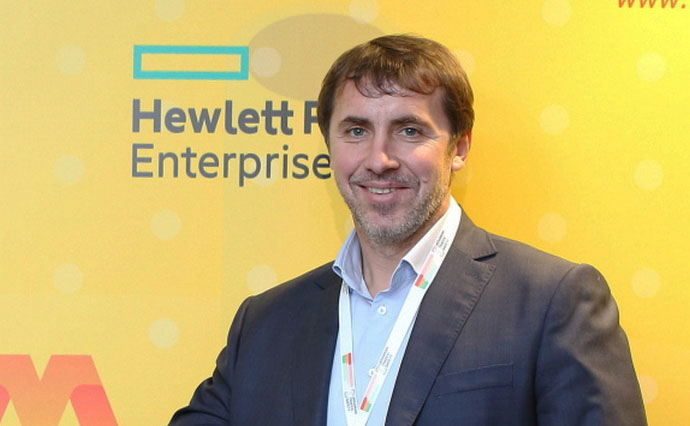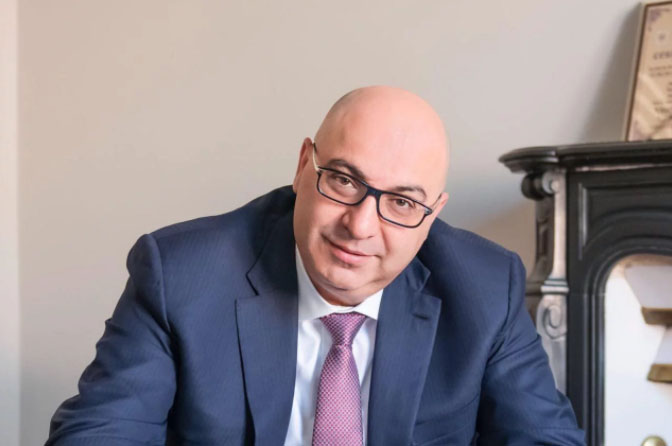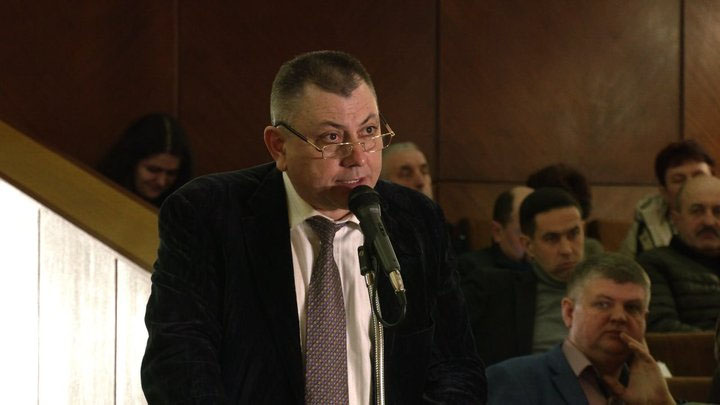Как партнёры предателя Украины продолжают зарабатывать для него деньги на обороне страны
Богдан Пукиш и Петр Белз являются ключевыми фигурами в сложной сети бизнес-интересов, связанных с Виктором Медведчуком. Белз, известный бизнесмен из Ивано-Франковска, и Пукиш, его давний соратник, играют значительную роль в управлении компаниями, которые контролируют важные активы и ресурсы на украинском топливном рынке. Их деятельность тесно связана с нашим оборонным комплексом. Возможно ли таких людей допускать к работе на ЗСУ, если вся их деятельность тесно связана с предателем Украины?
Наша редакция PROBLEMATIC NEWS очень заинтересовалась этим кейсом. И вот, что нам удалось раскопать.
Виктор Медведчук, находясь в России, сохраняет влияние на украинский бизнес, особенно на топливный рынок через подставных лиц, даже во время российско-украинской войны. Его бизнес-структуры продолжают приносить значительные доходы. Одной из таких компаний является Wexler Group, принадлежащая известному бизнесмену из Ивано-Франковска Петру Белзу.

Петр Белз, ранее генеральный директор погрязшей в уголовных делах компании «Анвитрейд», контролировал нефтепровод «Самара-Западное направление». Нефтепровод, построенный во времена СССР, должен был перейти в государственную собственность после провозглашения независимости Украины. Однако в течение многих лет им пользовалась российская компания «Транснефтепродукт». ФГИУ пытался вернуть этот актив в государственную собственность с 2011 года. В 2017 году НАБУ и САП начали расследование передачи права собственности на трубопровод. По результатам расследования, ВАКС арестовал актив, и с 2021 года он перешел в управление АО «Укртранснафта». В 2021 году ФГИУ подал иск в Хозяйственный суд Житомирской области, который признал за государством право собственности на трубопровод в июне 2023 года. Верховный Суд подтвердил это решение, и сейчас проводится регистрация права собственности государства на трубопровод.
Примечательно, что Wexler входит в орбиту влияния Петра Белза, который имеет партнерские отношения с Нисаном Моисеевым, чья компания «Глуско Украина» занималась импортом сжиженного газа из России и развивала сеть АЗС «Глуско» (которая впоследствии сменила название на «Оптимусойл», а его номинальным владельцем стал Петр Белз). Ранее Белз и Моисеев совместно руководили Херсонским нефтеперевалочным комплексом, арестованным в рамках уголовного производства по делу Сергея Курченко.

Кстати сам Моисеев, партнер и друг Медведчука. Они были замечены вместе с ним в 2016 году, прилетевшим из Москвы в Киев на частном самолете.
На сегодняшний день компании, связанные с Медведчуком через Моисеева и Белза, поставляют топливо и технические масла для украинских сил обороны и стратегических предприятий. Это вызывает беспокойство, так как обогащение предателей за счет украинского бюджета и армии, мягко говоря, аморально.
Однако одной из ключевых фигур в этой сложной сети остается Богдан Пукиш, соратник Белза и важный элемент в бизнес-схемах Медведчука. Его деятельность заслуживает особого внимания.

Богдан Пукиш: Важный игрок в теневой сети
Основатель нескольких компаний, включая ООО «ИВАПРОМ», ООО «Фирма «Химтехнопласт» и ЧП «Вестхим». Он также связан с Консорциумом «Система Эко Инноваций» и ГП «Агросфера». В политике Пукиш баллотировался в Ивано-Франковский горсовет от Народно-демократической партии и был координатором партии Медведчука «Украинский выбор» в Ивано-Франковской области.
Богдан Пукиш, несмотря на свою бизнес-активность, неоднократно был фигурантом скандалов и расследований.
В 2009 году на предприятии ОАО «Прессмаш» в Ивано-Франковске произошел корпоративный конфликт, инициированный отстраненным председателем правления Богданом Пукишем. Этот конфликт привел к спаду производства, приостановке контрактов с иностранными партнерами, вынужденному сокращению персонала и задолженности по выплате заработной платы. Представители правления объясняли, что работа предприятия фактически парализована, так как руководство не имеет возможности осуществлять оздоровление и модернизацию производства, подписывать гражданско-правовые договоры, платить заработную плату работникам завода и налоги в бюджеты.
Причина паралича — судебная война, затеянная Богданом Пукишем с новым руководством завода. После отстранения с должности в октябре 2008 года, Пукиш взял с собой печать ОАО «Прессмаш», без которой управление предприятием стало невозможным. Этот конфликт затруднил работу единственного в Украине предприятия, производящего механические прессы.
Вместе со своей женой Натальей и частной фирмой «Вестхим» Богдан Пукиш владел 42,93% акций ОАО «Прессмаш». Этот пакет акций позволял блокировать проведение собраний акционеров завода. На одно из таких собраний никто из семьи Пукишей не пришел, и необходимый кворум не собрался. Пукиш внес свои предложения по решению конфликта, предложив разделение предприятия или его ликвидацию. В результате данного конфликта Пукиш просто «отжал» Прессмаш и до нынешнего времени является его владельцем. В 2023 году, кстати, активно выступал против постройки жилья для переселенцев в Ивано-Франковской области, которое должны были возвести рядом с территорией завода «Прессмаш». Наверно увидел новый бизнес-проект для себя.
Несмотря на многочисленные уголовные дела за присвоение и растрату имущества, благодаря покровительству Белза, Пукиш продолжает получать прибыльные контракты. Он управляет компанией, выполняющей оборонные заказы, что значительно обогатило их с Белзом за последний год. Однако качество продукции, выпускаемой Пукишем, часто вызывает нарекания, ставя под угрозу жизни военных.
Производственные помещения одного из заводов используются Пукишем для хранения и ремонта оборудования его семейных предприятий, что приносит минимальную прибыль заводу и основную выгоду бизнесменам. Оборонные заказы Пукиш получает через связи с людьми, близкими к Медведчуку, что вызывает вопросы о законности и прозрачности таких соглашений.
Эти действия подрывают доверие к оборонной промышленности и ослабляют национальную безопасность. Невыполнение технологических норм, отсутствие контроля качества и связи с сомнительными персонажами создают риски вместо защиты. Однако такая схема полностью устраивает бизнесменов, которые планируют расширять её и применять при реализации международных оборонных проектов в Украине.
Возникает вопрос: может ли государство позволять таким людям и бизнесам продолжать работать не только на оборонные предприятия и нужды ЗСУ, но и вообще продолжать свою деятельность в Украине? Или будем и дальше закрывать на все это глаза.


